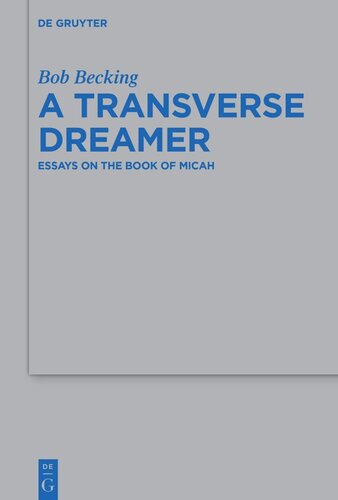

Most ebook files are in PDF format, so you can easily read them using various software such as Foxit Reader or directly on the Google Chrome browser.
Some ebook files are released by publishers in other formats such as .awz, .mobi, .epub, .fb2, etc. You may need to install specific software to read these formats on mobile/PC, such as Calibre.
Please read the tutorial at this link: https://ebookbell.com/faq
We offer FREE conversion to the popular formats you request; however, this may take some time. Therefore, right after payment, please email us, and we will try to provide the service as quickly as possible.
For some exceptional file formats or broken links (if any), please refrain from opening any disputes. Instead, email us first, and we will try to assist within a maximum of 6 hours.
EbookBell Team

4.1
40 reviewsThe final text of the Book of Micah provokes a series of questions:
- Can the Book be read as a coherent composition or is it the result of a complex redaction history?
- Was Micah a prophet of doom whose literary heritage was later softened by the inclusion of oracles of salvation?
The essays in this book center around these questions. Some of them are of a more general character, while others analyze specific passages. Some articles discuss the Book of Micah by looking at specific themes (prophecy; religious polemics; metaphors). The others are concerned with the proclamation of a peaceful future (Micah 4:1-5); the famous moral incentive in Micah 6:8 and the question of prophetic and divine gender in Micah 7:8-13. They have two features in common:
- A thorough reading of the Hebrew text informed by grammar and syntax.
- A comparative approach: the Book of Micah is seen as part of the ancient Near Eastern culture.
All in all, the author defends the view that the Book of Micah contains three independent literary elements: Micah 1: a prophecy of doom; Micah 2-5 a two-sided futurology, and 6-8 a later appropriation of Micah’s message.